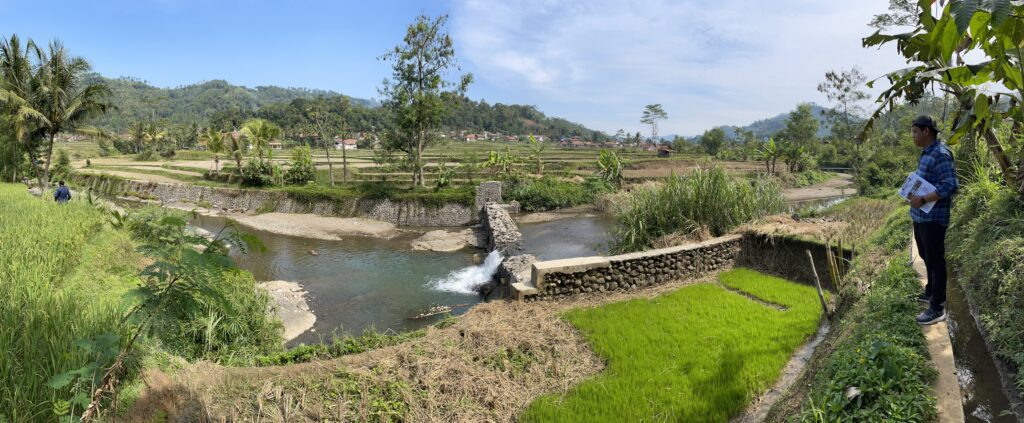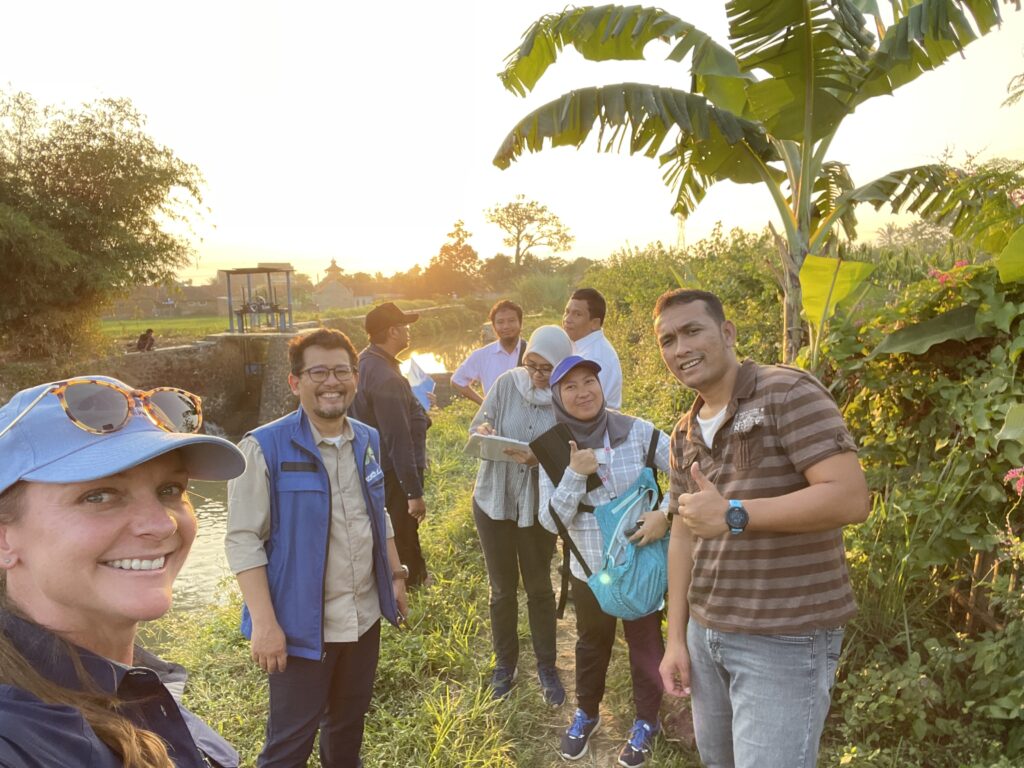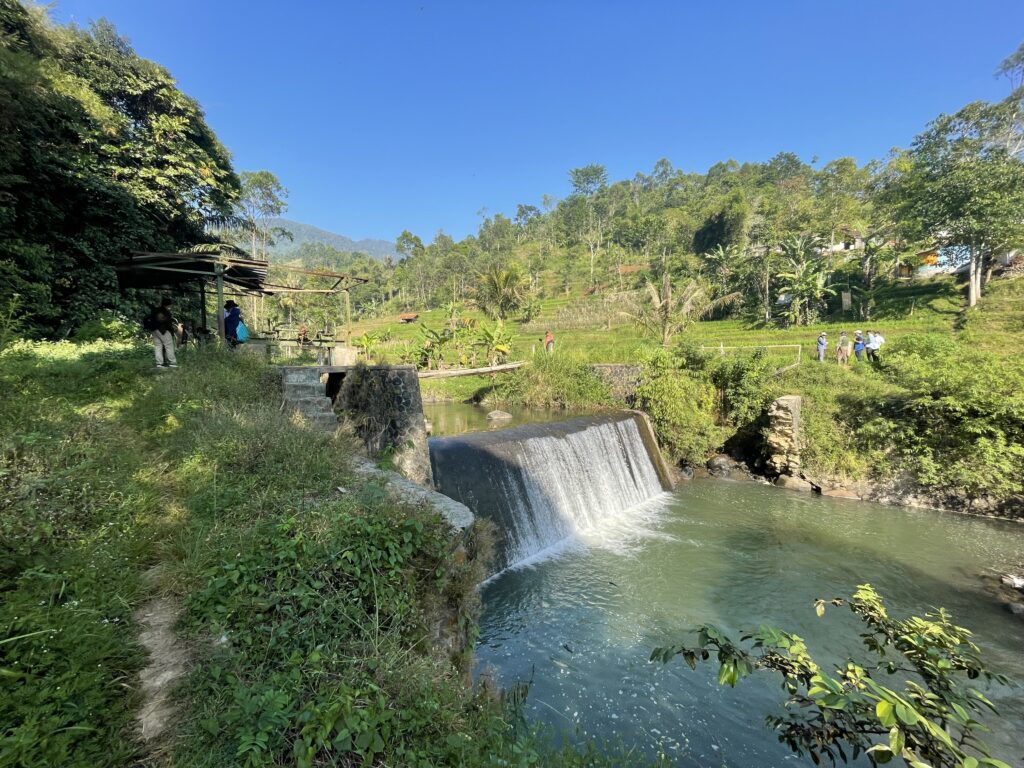Indonesia Barrier Assessment Field Training 2023
In Indonesia, many communities rely on fisheries resources for food security and income. The construction of instream barriers that alter/divert water flow for agriculture, irrigation, and hydropower, fragment river basins having a profound effect on ecosystems, biodiversity and water resources, as well as socioeconomic impacts on local communities.
Currently, there is very limited data on river basin fragmentation in Indonesia, limiting authorities’ ability to appropriately identify and remediate connectivity issues. To assist the Government of Indonesia bridge this information gap, Charles Sturt University (Gulbali Institute) (CSU) has joined forces with the United Nations Food and Agriculture Organization (FAO) to implement a project that aims to harness spatial planning to assist water authorities to locate existing river basin barriers, and to evaluate the impact that each has on river connectivity.
In Collaboration with CSU, AFPS travelled to Western Java, Indonesia to carry out field training for regional and local water management stakeholders, to enhance their proficiency in assessing instream barriers in relation to fish passage. The project will enable the prioritisation of river infrastructure for future rehabilitation.


